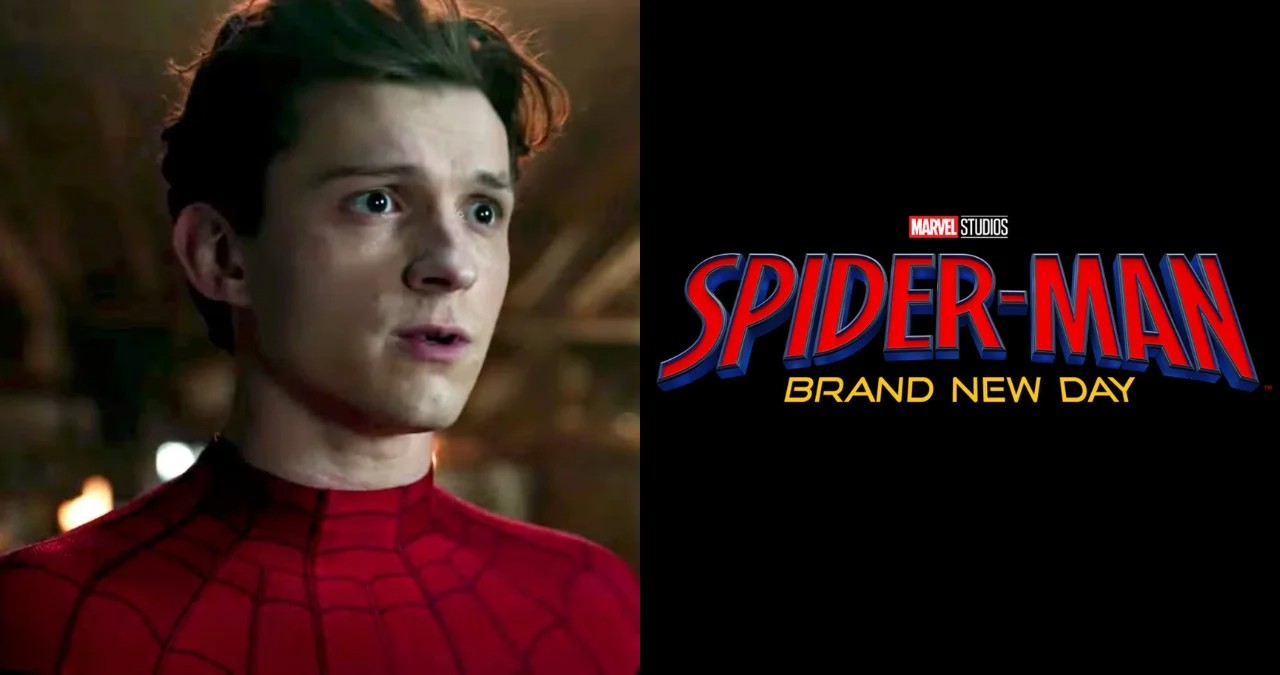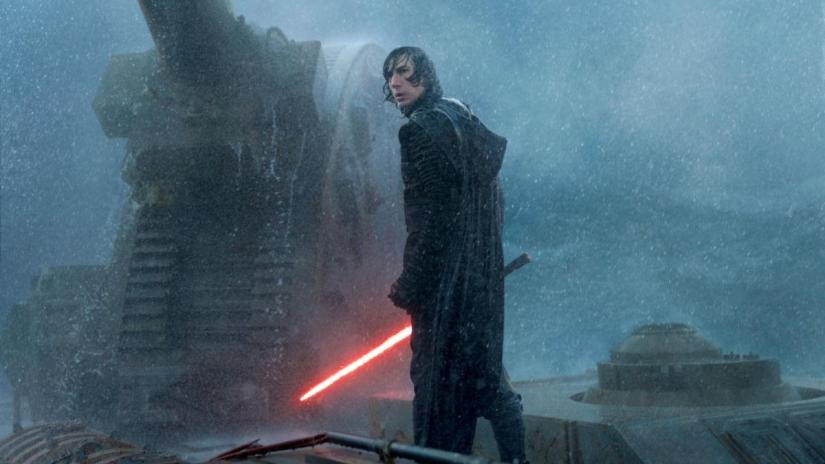
Welcome to Breaking Geek, a weekly column where uber-geek Nick Doll offers commentary and reactions to the most interesting news of the week, using his expansive knowledge of all things geek!
Last week, I began writing a ranking of every Star Wars film to coincide with Solo: A Star Wars Story hitting theaters, just as I like to rank every Marvel Cinematic Universe film upon each new release. There is always disagreement, name-calling, and fun discussion in the comments afterward: I always encourage fun discussion and deal with the name-calling.
Even so, after writing nearly my entire piece last week for Breaking Geek, I decided it wasn’t worth it. Discussing geek culture is one of my favorite things, but talking about Star Wars is no longer fun. I’d rather bring up current United States politics with strangers online than bring up someone’s thoughts on Solo: A Star Wars Story, or, god-forbid, Star Wars: The Last Jedi.
… Yet, I’m likely opening a brand new can of worms writing this. So hopefully we can have a critical, yet civil, discussion afterwards…
This loud, angry, divisiveness is spreading. Civil conversations about other franchises are beginning to turn into shouting matches as everyone gets more dug in on their opinion.
It’s fine to have your own opinion, share it, and remain unconvinced by others arguments. It’s what I do here literally all the time. But, as social media grows even more a part of our lives everyday, the loudest, often angriest voices become the most noticeable, and name calling and death threats come into play as trolls hide behind usernames and images of their favorite movie and TV characters. And when one side becomes more vocal, the other side raises their voice to respond, and suddenly film fans are at each other’s throats!
Rotten Tomatoes too, as well as the websites that calculate reviews from “certified” reviewers into “correct” score for a movie based on the averages, seems to only divide us further and influence our opinion before about a film before we have seen it.
That is why I think over-zealous fanboys, social media, and Rotten Tomatoes are spoiling in the movie-going experience, with Solo: A Star Wars Story falling as one of the first victims of the process.
NOTE: Look, I get it, this column and LRM are as much a part of this overall process as social media and Rotten Tomatoes. And we’re all fanboys here. So, though I won’t be discussing movie news websites in this column, I do include the comment sections below them as social media playground where divisiveness runs rampant.
Rotten Tomatoes And Great Expectations
Rotten Tomatoes and becoming more and more important in both influencing and predicting box office numbers. Look at the most recent Blu-ray purchase of a new release you bought. Is there is little “Certified Fresh” Rotten Tomatoes graphic on the front or back cover? If not, they either used that space to say the film was Oscar-nominated instead, you’re holding a special steel book release or the like, or you’re holding what Rotten Tomatoes deems to be just an okay-to-bad film. But, what do you think of that movie even if it doesn’t have a sticker. You bought it right? So, you hopefully like it.
Up until recently, I let myself fall into the trap of letting Rotten Tomatoes influence my decisions too heavily. I’d not see movies that I would have seen in the days before Rotten Tomatoes. Obviously, I ignore everything the outlet has to say about comedies, as critics seem to hate any raunchy comedy with exception of a few that sit around 80% like Game Night. But, though Rotten Tomatoes would never keep me from seeing a DC, Marvel Studios, or Star Wars movie, it has kept me from other new franchises and sequels to movies I actually enjoy, because I assigned it too much importance.
It may be the “average” score of what critics thought, which is arguably better than one review, but this doesn’t mean I should consider the consensus “more correct” than back in the day of reading on review in the paper and often saying, “screw this critic, I want to see Die Another Day!” Still just a bunch of people with personal opinions, most who have less in common with you than the average movie-goer.
Star Wars has been a franchise that has enjoyed high rotten tomatoes scores since its return under Disney, with Solo getting the lowest score since the Prequels. Though a lot of fanboys who hated Last Jedi, as well as those not wanting to see Han Solo “ruined,” hurt the box office, but I can’t help if wonder if families who enjoyed the last three films, sat this one out partially because of Rotten Tomatoes. That’s why it looks like Solo will have a strong second weekend, the positive word of mouth is beginning to counteract the Rotten Tomatoes scores (though to be fair, projections are going back and forth on the second weekend, so we’ll see).
I work at a movie theater in a town where we are the only one. Full of L.A. transplants and well-educated hippies, this unnamed city runs on Rotten Tomatoes, hence my predicting box office comment earlier. When a blockbuster is reviewed well, we bumpin’! When the outlook is grim, Solo weekend becomes the slowest Star Wars weekend I have ever worked.
I used to wait on bated breath for the latest Marvel or Star Wars review, as well as early DCEU entries, sighing with relief when the review was positive, whereas I should be ignoring that, and sigh with relief when the film is over. Why do I care what a bunch of critics think? Why am I letting a website influence me so much? It’s a hard habit to break, but I’m getting there.
Rotten Tomatoes is also used as an arguing tool. “Of course DC is better than Marvel, look at Rotten Tomatoes!” Or, “Of course The Last Jedi is great, critics said so!” I like to use a Rotten Tomatoes score to convince (trick?) my parents to see the latest Marvel film, but should it really be involved in any true argument about your thoughts on the film? Even if it is the popular opinion, you are just repeating it. Know your genre, your franchises, favorite actors and directors and ignore Rotten Tomatoes if you too feel it has had too much influence over your life.
Social Media Gives Some People Too Loud A Voice, Spreads The Hate
Look, everyone has their right to their opinion online. Again, all this is my opinions. Who am I to stop others from having them? It just seems like hate rises to the top of social media, with most my experience coming from Twitter. Not that hate is not sometimes deserved, if you hate a movie, say it. But don’t celebrate it. Don’t tag the director or actor to let them know how terrible the movie is.
Even when not out of hand, lately there has been a complete disconnect between fans online and people I know in my life. Not everyone I know likes Solo, but a majority of the people in my life — work, barber, doctor, friends, family, etc — like the film. Yes, my friends have similar tastes as me, but it also seems all the negativity floats to the top online, and I can often watch my employees opinions sour on a film about the time the hate arrives online. Most loved Last Jedi for the first two weeks, only changing their mind as the haters on the internet grew louder and louder.
Again, not saying you don’t have the right to hate Solo or Last Jedi, as well as the right to share it online. Even in the comments below! It just seems like now that public opinion is so… well, public and accessible from people you would never meet in day-to-day life. And if you’re not careful, you could decide not to see a film you were looking forward to because the haters are loud.
Solo is an extreme case of this, but also a slightly different one. In this case, social media allowed hate to grow for the film due to production woes, whereas some of the best films of all time have come out of what seem like less-than-ideal shooting schedule, with Jaws being partially written on the fly. People are still overacting to reshoots. Sometimes you get Justice League, but other times you get a great film!
It’s not good to have expectations like that before even a trailer. Without social media, maybe you would have never heard of any of it (well, you would have, because you come here).
Fanboys Make It Possible
And fanboys are what make it all possible; social media and even Rotten Tomatoes are often our tools to discourage someone else from seeing a movie, or accidentally lowering our own expectations to a point where we don’t see the movie, have bias going in, or too concrete expectations, ruin the viewing experience.
Because this is what seems to be the recent trend. Well, it has always been a thing, but internet fanboy culture only makes it worse. And the latest two Star Wars films are perfect examples of this (though I’m sure every Star Wars film aside from the original has dealt with this, as well as most sequels), fanboys have such concrete expectations, things they believed had to be in Last Jedi and things that couldn’t be, and when director Rian Johnson failed to read their minds and make every one of us a personal version, fans were upset. But, they were also louder than ever before, and with this seeming clash between what Rotten Tomatoes loved vs what fans hated — the opposite conversation is common — things really boiled to an all-time high of Star Wars fans hating Star Wars, and worse, other Star Wars fans.
As you saw in that case, the fanboys may ignite the process, but social media and Rotten Tomatoes have given them the tools to split fans and over influence others, creating an online debate as ugly as anything we’ve seen since 2016.
My advice to fanboys, just be cool with it. Lower your expectations. Be open to new experiences. Don’t predict the film or have theories that upset you when they don’t happen. Seeing movies and discussing them is supposed to be fun. So, let’s have fun doing it.
Now, I want to hear from YOU! Agree with my opinions? Think I’m wrong about everything? Let me know! Let’s get some fun discussions and arguments going in the comment section below.
Don’t forget to share this post on your Facebook wall and with your Twitter followers! Just hit the buttons on the top of this page.
 FOR FANBOYS, BY FANBOYS
Have you checked out LRM Online’s official podcasts and videos on The Genreverse Podcast Network? Available on YouTube and all your favorite podcast apps, This multimedia empire includes The Daily CoG, Breaking Geek Radio: The Podcast, GeekScholars Movie News, Anime-Versal Review Podcast, and our Star Wars dedicated podcast The Cantina. Check it out by listening on all your favorite podcast apps, or watching on YouTube!
Subscribe on: Apple Podcasts | Spotify | SoundCloud | Stitcher | Google Play
FOR FANBOYS, BY FANBOYS
Have you checked out LRM Online’s official podcasts and videos on The Genreverse Podcast Network? Available on YouTube and all your favorite podcast apps, This multimedia empire includes The Daily CoG, Breaking Geek Radio: The Podcast, GeekScholars Movie News, Anime-Versal Review Podcast, and our Star Wars dedicated podcast The Cantina. Check it out by listening on all your favorite podcast apps, or watching on YouTube!
Subscribe on: Apple Podcasts | Spotify | SoundCloud | Stitcher | Google Play




